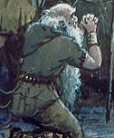Forum
Welcome Guest |
|
|---|---|
 Author Author |
Topic: |
|---|
| Cillendor |
|
||||||||
| Galadivren |
|
||||||||
| Cillendor |
|
||||||||
| Moltac123 |
|
||||||||
| CP2001 |
|
||||||||
| Galadivren |
|
||||||||
| Galadivren |
|
||||||||
| CP2001 |
|
||||||||
| Moltac123 |
|
||||||||
| Cillendor |
|
||||||||
| Galadivren |
|
||||||||
| Cillendor |
|
||||||||
| Galadivren |
|
||||||||
| Cillendor |
|
||||||||
| Galadivren |
|
||||||||
| rpelchar |
|
||||||||
| Lastiel Rusc |
|
||||||||
| Galadivren |
|
||||||||
| Galadivren |
|
||||||||
| Cillendor |
|
||||||||
| Lastiel Rusc |
|
||||||||
| Ardithenion |
|
||||||||
| Ardithenion |
|
||||||||
| Galadivren |
|
||||||||
| Ardithenion |
|
||||||||
| Cillendor |
|
||||||||
| Ardithenion |
|
||||||||
| Cillendor |
|
||||||||
| Galadivren |
|
||||||||
| Galadivren |
|
||||||||
| Cillendor |
|
||||||||
| Tatomen |
|
||||||||
| Cillendor |
|
||||||||
| Tatomen |
|
||||||||
| TreeofGondor |
|
||||||||
| Members Online |












 )
) That's a wee bit different!
That's a wee bit different!

